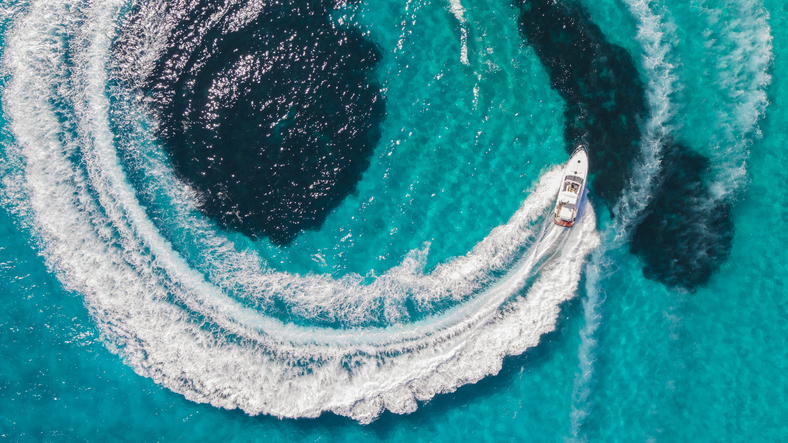No matter how you use it, your boat is a substantial investment and mishaps are bound to happen- even for the best sailors. This is especially true for boat racing —thrilling as it is, it puts you, your crew and your boat to the test. You will be traveling at high rates of speed whether you operate a sailboat, a powerboat or a yacht. For that reason alone, it pays to prepare with the right equipment and training to engage in a race.
At first, though, you are likely to have one big question in mind: how fast do boats go in mph? This of course depends on the type of boat and the body of water. The fastest sailboat reached speeds of over 75 mph. The speediest yacht will cruise the waters at about 70 knots per hour, or roughly 80 mph. The fastest boats belong to the fuel hydroplane class and they reach amazing speeds of 270 mph. A few specialty boats topped speeds beyond this level. Here’s a closer look at the various types of racing boats and the practical costs you need to consider for boat racing.
The Irresistible Appeal of Drag Boat Racing
In spite of the dangers and the possibility of legendary wipeouts, many people crave the call of high speeds. Drag boats remain the fastest boats on the boat racing circuit. As such, these boats draw a lot of attention and bring in many new racing enthusiasts to the sport. A new drag boat will start around $30,000 and go all the way up to a million dollars. A new hydroplane model runs about $70,000.
What is a racing boat called? Three main types of drag boats exist:
- Hydroplane
- Flat bottom
- Jet
Hydroplane drag boats run on jet fuel powered by a turbine engine. Flat bottom drag boats cost less than hydroplane models and rarely exceed 50 mph. A new jet drag boat can exceed $60,000 and tops out at the same speeds as flat bottom designs.
The Practical Side to Drag Boat Racing
While it is easy to get lost in the thrill of traveling at mind-blowing speeds, boat racing includes many practical elements. Learning and continued education play an important role in your safety and the protection of your boat. In addition to the cost of the boat, you should be prepared to face the following expenses as well:
- Maintenance
- Registration costs
- Racing fees
- Fuel costs
- Storage
- Insurance
Travel to races could add up as well. So long as you are prepared, boat racing offers a thrill a second when you are on the water.
About Mariners General Insurance Group
Mariners General Insurance Group was founded in 1959 to protect boat owners and marine business clients. We are marine insurance experts and insure boats worldwide – in every ocean on the planet. Marine insurance is critical if you own a boat or nautical business. Trust the professionals with all of your Boat Insurance needs – trust Mariners Insurance. Call us at (888) 402-5018 any time you have questions or concerns about insurance for your vessel or marine business.


